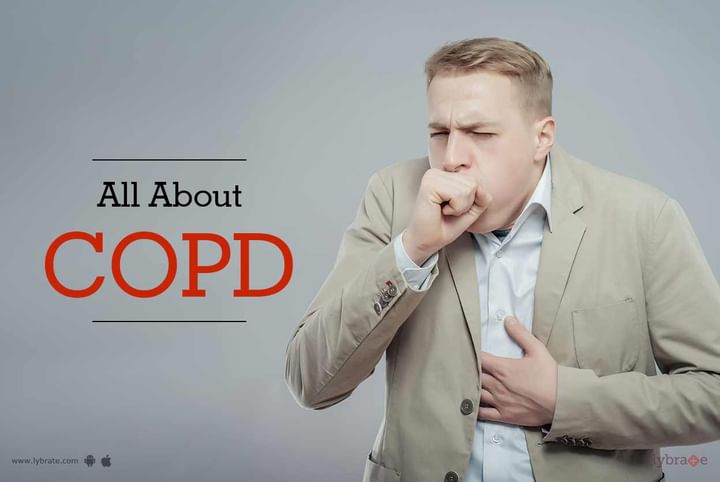All About COPD!
COPD, which is short for Chronic Obstructive Pulmonary Disease, is a severe form of lung disease that is characterized by increased breathlessness and obstruction of airflow from the lungs. People who are suffering from COPD are at an increased risk of developing lung cancer, heart diseases and many other conditions. It includes progressive lung diseases such as chronic bronchitis, emphysema, few forms of bronchiectasis and refractory (non-reversible) asthma. The former two are the most common conditions contributing to COPD.
Chronic bronchitis induces inflammation in the airway that carries air to the lungs and fills it with mucus. This either completely blocks the airway or narrows it, causing difficulty in breathing. However in emphysema, the air sacs inside the lungs which inflate and deflate as you breathe in and out, lose their elasticity due to which less air comes in and goes out leaving you breathless.
The best way to treat COPD is to quit smoking. Your doctor may also prescribe you medications or ask you to enroll in a lung rehab program.
Causes:
- Smoking: Smoking is one of the most common causes of COPD. This is because smoking is known to destroy the stretchy fibers in people's lungs and irritate the airways. Even passive smoking is unhealthy. About 90% of the people having COPD are current or former smokers.
- Genetics: Some individuals suffer from COPD even after refraining from smoking. Genes might be at the helm of COPD in such a case. AATD i.e. Alpha -1 Antitrypsin Deficiency, is a protein in the lungs, the lack of which is one of the most common genetic factor causing emphysema.
- Environmental Factors: Breathing in harmful pollutants present in your environment is also one of the causes of COPD. Fumes, dust or certain chemicals are a few examples of harmful lung irritants. Organic cooking fuel may also cause COPD. Exposing yourself to the aforementioned environmental factors for a prolonged period of time increases your risk of developing COPD substantially.
Symptoms:
- Shortness of breath especially after exercising
- Wheezing
- Tightness in your chest
- Unintended weight loss
- Lack of energy
- Frequent respiratory infections
- Wheezing
- Cough accompanied by mucus
Diagnosis:
- Physical Exam where your doctor monitors the functioning of your lungs.
- Questioning about your past health (Smoking or other harmful lung irritants).
- Spirometry and other breathing tests.
- Chest x-rays and other tests to eliminate other problems which could be causing your symptoms.



+1.svg)
